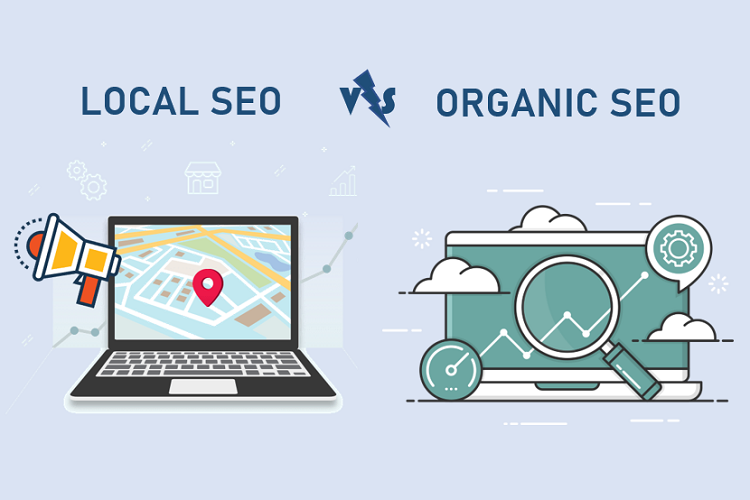Do you think you require Local SEO and Organic SEO? If you are slightly aware of your digital presence, you must have come across both of these terms. And today, we will give you an in-depth idea about what local SEO and Organic SEO are all about and why you require this for the wellbeing of your business.
4 Differences Between Local SEO and Organic SEO
So, look no further than this blog to know in detail what the top differences are of this and why at all you require them! Let’s check them out below:
Your Target Audience
The significant difference between Local SEO and Organic SEO lies in the target audience. The term organic specifically implies the word natural. So, technically speaking, organic SEO means the results that come naturally and is the set of questions people are looking for information about.
Since the audience is not eager to make any transactions, they typically want information about a particular thing. In this case, if you go for organic SEO, you are likely to improve your website’s brand recognition and visibility.
Whereas, Local SEO means you target the audience present there on SERPs to look for a particular service or product. In this case, the search might include the term ‘near me, or have the name of their service or product presentation.
According to some statistics, people are likely to purchase on the same day itself. So, upgrading and working on your local SEO becomes extremely important in this case.
Content
Providing relevant content is a huge part of SEO. And for that, people usually rely on professional people like https://studiohawk.com.au/seo-services/seo-content-writing/. Through this, they can ensure their work is being done correctly with the proper techniques, and this is irrespective of whether you want to do Organic or Local SEO.
However, the type of content varies. If you are looking for organic SEO, you would have to focus on keywords and topics your audiences are searching for. On the other hand, if you are thinking about local SEO, your content should have keywords like near me or a certain place’s name, for example, restaurants in Melbourne.
This generally localizes the content, keeping in mind what the local audience generally wants. And for the topic of the content, people focus on their search engines in a specific geographical location.
SERPs
When there is an organic search, the results come up when the searcher does not have the intent to look for anything localized. They are generally looking for a piece of specific information in the search.
So, if you are the owner of a business and have a store where you wish to attract customers, your target would be Local SEO as you want the local people looking for your store rather than people who live far away. Moreover, in the case of Local SEO, you will be able to appear on maps, apps, and much more. All of which is not possible in Organic SEO.
Link Citations
Backlinks are an essential factor in organic SEO. And citations are the determining ranking factor for local SEO. Each of them is important in each optimization strategy. The local citations mean you are mentioning the business address, phone number, and name. In short, this is known as NAP. This is the same as the backlinks that you create to benefit from SEO.
If you don’t know what backlinks are ? Then, these are the links that are of your website present on other websites. In this case, the usage of proper anchor text or keyword is extremely important and strategic as it should compel your readers to click on it to be redirected to your website.
But if you wish to benefit from citations done majorly for local SEO, you will have to give the right NAP details that are present on the website and Google My Business account.
Final Thoughts
As we come to the end of our blog today, we are sure you know precisely the use of Local and Organic SEO. So, go ahead and implement these to see your rankings on SERPs go up within a set time period, consequently increasing your sales.




